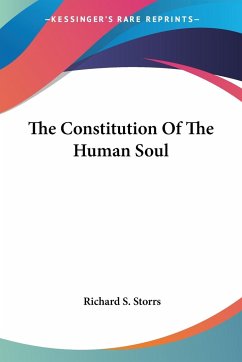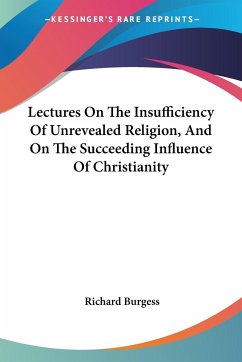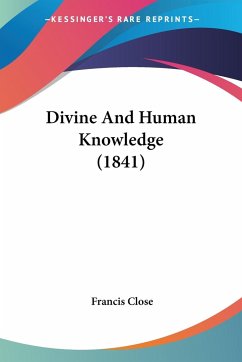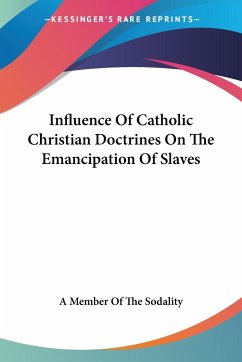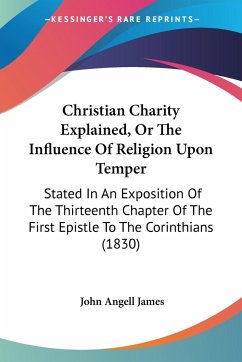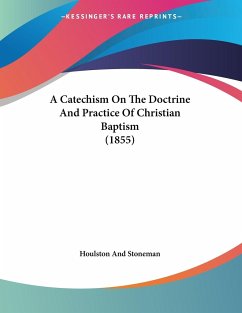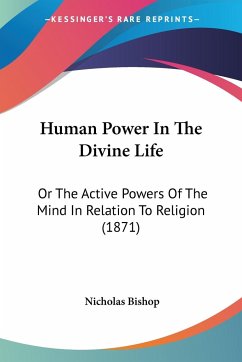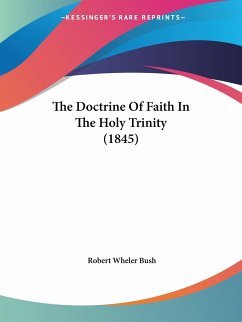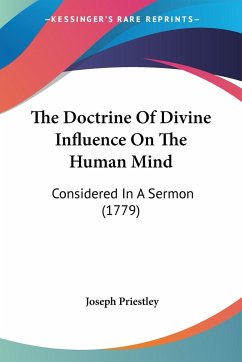
The Doctrine Of Divine Influence On The Human Mind
Considered In A Sermon (1779)

PAYBACK Punkte
9 °P sammeln!
The Doctrine of Divine Influence on the Human Mind: Considered in a Sermon is a book written by Joseph Priestley in 1779. The book is a theological work that explores the idea of divine influence on the human mind. In the sermon, Priestley argues that God has the power to influence human behavior and that this influence can be seen in the actions of individuals who are guided by their faith. He also discusses the role of reason and free will in the human mind, and how these factors can be affected by divine influence. The book provides a thoughtful and insightful discussion of the relationship...
The Doctrine of Divine Influence on the Human Mind: Considered in a Sermon is a book written by Joseph Priestley in 1779. The book is a theological work that explores the idea of divine influence on the human mind. In the sermon, Priestley argues that God has the power to influence human behavior and that this influence can be seen in the actions of individuals who are guided by their faith. He also discusses the role of reason and free will in the human mind, and how these factors can be affected by divine influence. The book provides a thoughtful and insightful discussion of the relationship between God and humanity, and the ways in which divine influence can shape our lives. It is a valuable resource for anyone interested in theology, philosophy, or the history of religious thought.This scarce antiquarian book is a facsimile reprint of the old original and may contain some imperfections such as library marks and notations. Because we believe this work is culturally important, we have made it available as part of our commitment for protecting, preserving, and promoting the world's literature in affordable, high quality, modern editions, that are true to their original work.




